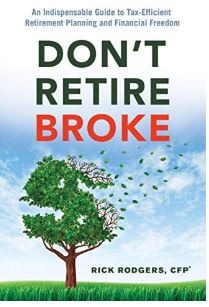Have you been thinking about cutting back on gold? Don’t forget it’s not an investment. The IRS categorizes gold (and other precious metals) as a collectible rather than an investment. Gains from collectibles and investments are taxed as ordinary income if held for less than 12 months. The tax treatment is very different when the two are held for periods longer than 12 months. Investment gains are taxed at a maximum rate of 20% while gains on collectibles are taxed at 28%. That is over one and a half times the tax!
This same rule applies to Exchange Traded Funds (ETFs) that are backed by physical gold. The gain on your gold ETF may be taxed as a gain on a collectible. The tax treatment of the ETF will depend on how much of the fund is invested in physical gold versus some asset that is tied to the price of gold. An ETF that doesn’t own much of the physical commodity may still get investment tax treatment.
Even if you decide not to sell your gold ETF, you can still get pinched with the collectibles tax. The ETF may need to sell some of their holdings to pay expenses of operating the fund. Any gains realized on the sale will be passed through to the shareholders even if they don’t actually receive a distribution of cash. We refer to this as phantom income. Paying tax on income you didn’t receive only makes sense to the IRS. Thankfully none of this applies to owning shares in a precious metals mutual fund. Capital gains and distributions from this type of fund are treated like any other mutual fund.
As you’re doing your year-end investment review, keep this information in mind when reviewing your holdings in precious metals. Nobody likes nasty surprises. Especially when those surprises come in the form of income taxes.
View Rick’s original post here.
By Rick Rodgers
Read more from Rick Rodgers by clicking here to purchase his book.
 Don’t Retire Broke:
Don’t Retire Broke:
An Indispensable Guide to Tax-Efficient Retirement Planning and Financial Freedom, by Rick Rodgers
Using easy-to-understand language and real life examples, Rick teaches you how to avoid savings pitfalls and costly tax mistakes – many you may not even know about – so you can enjoy the retirement lifestyle you want.



This Post Has One Comment
I’m still learning from you, but I’m trying to reach my goals. I absolutely enjoy reading all that is posted on your blog.Keep the stories coming. I liked it!